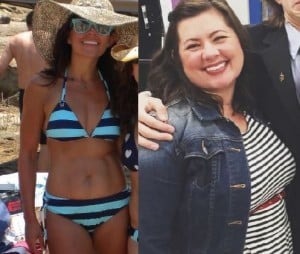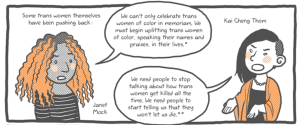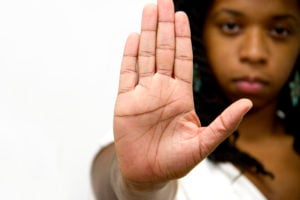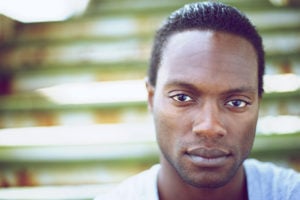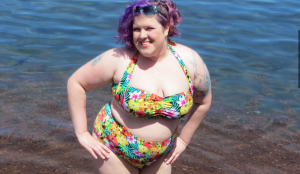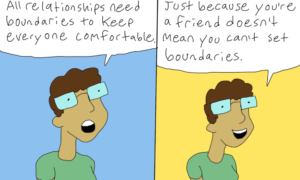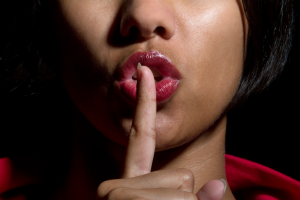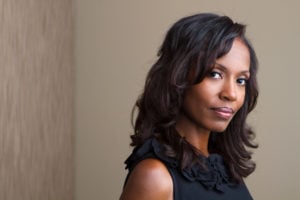
Source: Disability E-Cafe
Representations of disability in the media are unfortunately few and far between. What little exposure we do receive usually comes in the form of fluff pieces – tragic tales and inspirational stories.
It goes without saying that our lives are a lot more complicated than that.
We face many issues that can’t be glossed over with a swell of uplifting music.
Growing Up into Infantilism
As a woman with cerebral palsy who uses a wheelchair, coming of age was…disappointing, to say the least.
Like most teenagers, I was excited by the prospect of my first relationship. I had a lot of crushes and enjoyed flirting.
Unbeknownst to me, I was expected never to move beyond the emotional and social needs of a young child. Accordingly, hardly anyone outside of the disabled community has ever taken me seriously as a potential romantic or sexual partner.
Able people often deal with their discomfort or lack of awareness about disability by imagining us as perpetual children, thereby claiming to shield us from harsh realities that our circumstances allegedly leave us ill-equipped to handle.
Since people with disabilities are routinely infantilized, we have an applied universal asexuality assigned to us by the status quo that never really disappears.
(Note: I fully acknowledge and respect those in the disabled community who do identify as asexual. I am commenting on the sexual erasure of disabled people of other orientations who are falsely presumed to be asexual.)
The “intimacy gap” only widened as I got older.
By the time I was in college, it seemed like everyone who wanted to have sex was having sex. Or at least, they were recognized as having the freedom to make their own choices about their relationships and their bodies.
I didn’t even know what I wanted, but what I resented most was the complete degradation of my own agency. Everyone laughs at the idea that disabled people could have any desire.
Even sympathetic friends have repeatedly made it clear that how far I go in any relationship depends on the compassion and open-mindedness of the other person, as if my sexuality is grotesque to the point where only bleeding heart saints would dare tolerate it – and I would be forever indebted to them for doing so.
That didn’t exactly feel empowering.
Portrayals of Disabled Sexuality in the Media
Sick of the condescension, I turned to documentaries and films to see how they handled the topic. Predictably, they reinforced many of the same attitudes.
Yes, it’s a good thing that they show disabled people as sexual beings with (somewhat) natural desires.
However, they use this guise of liberalism to reassert able superiority and reaffirm the deviance of disabled sexuality to the audience, confirming the very stigma that they claim to be breaking down.
For examples, check out Scarlet Road and Sex on Wheels.
The Sessions is probably the most popular illustration of these themes, about the relationship between a provider of commercial sex and her virginal middle-aged client disabled from polio, but the reviews were so rife with ableism and glorification of the provider’s “selflessness” that I admittedly couldn’t bring myself to watch it.
Any frank discussion of sex and disability will almost inevitably fall back on a certain narrative: The disabled person is tired of being a virgin and hires a provider of commercial sex, either as a defiant rebuff of social norms or out of sheer loneliness and a desire for physical contact.
Bonus points if the person’s parent helps set up the exchange and the crew wastes no opportunity to underscore how creepy that is.
Expect heavy emphasis on how the disabled person will have all of their social problems disappear once they lose their virginity. We’re just bitter because we’re so horny!
The provider of commercial sex will be elevated to sainthood at every turn. Viewers just can’t seem to get enough of how they can bear to have sex with disabled people, instead of acknowledging them as merely having a good attitude towards their job.
So as not to appear callous, the narrative will milk the sympathy angle. The provider of commercial sex will talk at length about the extent of the inexperience of their disabled clients, however unintentionally framing themselves as the able savior who is going to free the disabled person from repression.
The Consequences of Spectacle
To be clear, I have nothing against a disabled person’s choice to work with a provider of commercial sex, nor do I think that the provider intends to come off as patronizing.
A lot of ignorance exists around sex and disability, and the provider of commercial sex is (unfairly) looked to as the all-knowing expert.
The problem lies in the way it’s presented, encouraging the audience to gawk and giggle.
Providers of commercial sex face enough prejudice already without being made into a spectacle for their choice of clientele. There appears to be many similarities between the portrayals of providers who cater to particular fetishes and those who cater to disabled clients.
The implication is that we are still supposed to understand their clients as abnormal and unworthy of the mainstream. The progressivism only comes into play when we build up an ambivalent tolerance rather than outright repulsion.
We can breathe a sigh of relief that we don’t have to feel guilty for allowing our biases to facilitate the sexual repression of pitiful undesirables.
By viewing providers of commercial sex who work with the disabled as essentially the garbage men of society’s cringe-inducing sexual underbelly, you degrade both the provider of commercial sex and the disabled person.
Regardless of how anyone else perceives them, the provider’s professional relationships with their clients likely hold a great deal of significance. Labeling them as simply “taking one for the team” by working with disabled people glosses over the complexity of these bonds.
In addition, no matter how honestly the subject is handled, the disabled person’s sexuality usually remains disrespected. They may have gained street cred, but we are constantly reminded that they only achieved momentary sexual validation through elaborately orchestrated, almost painfully sterile circumstances.
At the end of the day, no one is actually meant to start perceiving disabled people as desirable.
The cultural stigmas go unquestioned and loom larger. We’re merely comforted and impressed by the fact that a few disabled people have the resources/privilege to achieve fleeting oppression transcendence.
The ‘Radical’ Reinforcement of an Ableist Status Quo
Now you may be thinking, “Erin, why are you rambling on about a few obscure documentaries? Surely their messages can’t be getting much traction.”
What’s scary is that these pieces are supposed to be the cutting edge of gritty disability exposé, finally cutting to the heart of the genuine social struggles faced by people with disabilities.
Even in these alleged moments of radicalism, the idea persists that we just can’t have a sexuality without it being distorted or misappropriated through an ableist lens.
If we’re virgins, we’re sad. If we seek providers of commercial sex, we’re desperate. If we pursue casual sexual conquests and succeed, we’re delusional caricatures of sluts and womanizers.
It’s true that able people face the same sex-related stereotypes to an extent, but with nowhere near the same level of snide mockery.
Adding insult to injury, this tongue-in-cheek skepticism is rendered benign because remember, we’re children, and children apparently have no grasp of the reality of social interactions. But it sure is hilariously adorable when we think we do!
That’s the core of the issue. The most intimate portrayals of our lives and desires do nothing to dispel the myth that disabled people are socially inferior.
They naturalize these biases as not only correct but harmless since the able community is gracious enough to provide us with an outlet.
Sex is all we need, right?
If people want to hire a provider of commercial sex, that’s their decision.
However, that shouldn’t be viewed as our only option.
What if we don’t want just sex? What if we want conversation? dating? a spouse? What if we just want to flirt with some attractive people and have them be flattered instead of disgusted or amused?
You can’t selectively ignore all the other social prejudices that disabled people face just because you think you found a one-size-fits-all solution to one aspect of one problem.
Orgasms can’t erase ableism.
Ableism exists on an institutional, social, cultural, and everyday level.
While sex can be perceived as a fundamental human experience, helping someone get laid as a means to assuage collective guilt from the mainstream and “allow” disabled people to believe that they’ve achieved social equality is (no pun intended) fucking ridiculous.
By fixating on sexual experience as the Holy Grail of basic humanity, the able community lazily sweeps ableism under the rug to avoid critiquing their own privilege.
We are repeatedly called upon to beg for breadcrumbs of legitimacy.
I’ve had numerous crushes delight in “humoring” me by asking me to make a case for why I think they should find me attractive, with the forgone conclusion that they never would.
I’m a sexy, strong woman regardless of ability.
No one should ever be expected to prove their desirability. If your partner ever acts like they’re doing you a favor by tolerating being with you, head for the hills.
Not to mention the countless other deeply entrenched inequalities impacting people with disabilities – difficulties with poverty, unemployment, and housing to name a few – that easily eclipse matters of the heart, but that’s another article for another day.
***
The media attempts to raise awareness of disability, albeit misguidedly. For that, I am grateful. But it doesn’t mean we can wash our hands of a marginalized community after a few minutes of education.
Don’t let yourself get wrapped up in the feel-good story.
Look for the subtle implications of the message. In lieu of passively indulging in the spectacle to remain within your comfort zone, turn that same level of scrutiny on the social norms themselves.
People with disabilities deserve to determine their own relationships. Intimacy, whether sexual or otherwise, is an essential human craving that shouldn’t be policed or allocated in degrees according to an arbitrary social hierarchy. It’s about communication, closeness, and just the pure joy of sharing an experience with someone.
Getting laid is awesome, but it isn’t the end-all, be-all for everyone.
Erin Tatum is a Contributing Writer at Everyday Feminism. She’s a feminist, queer theory lover, and television enthusiast living in Pennsylvania. She is particularly interested in examining the representation of marginalized identities in media. In addition to Everyday Feminism, she’s also a weekly contributor to Bitch Flicks. Follow her on Twitter @ErinTatum91 and read her articles here.
Search our 3000+ articles!
Read our articles about:
Our online racial justice training
Used by hundreds of universities, non-profits, and businesses.
Click to learn more
Most Read Articles
- « Previous
- 1
- …
- 30
- 31
- 32






